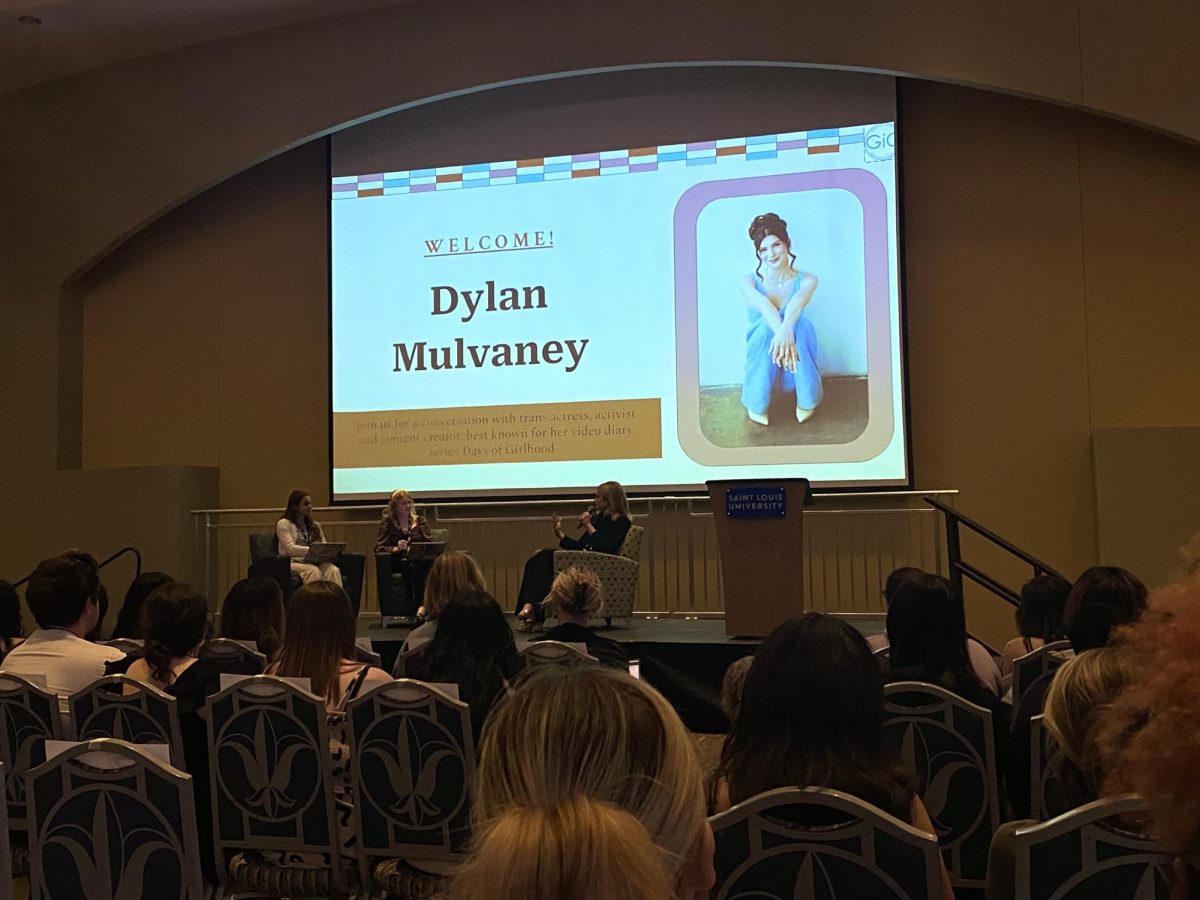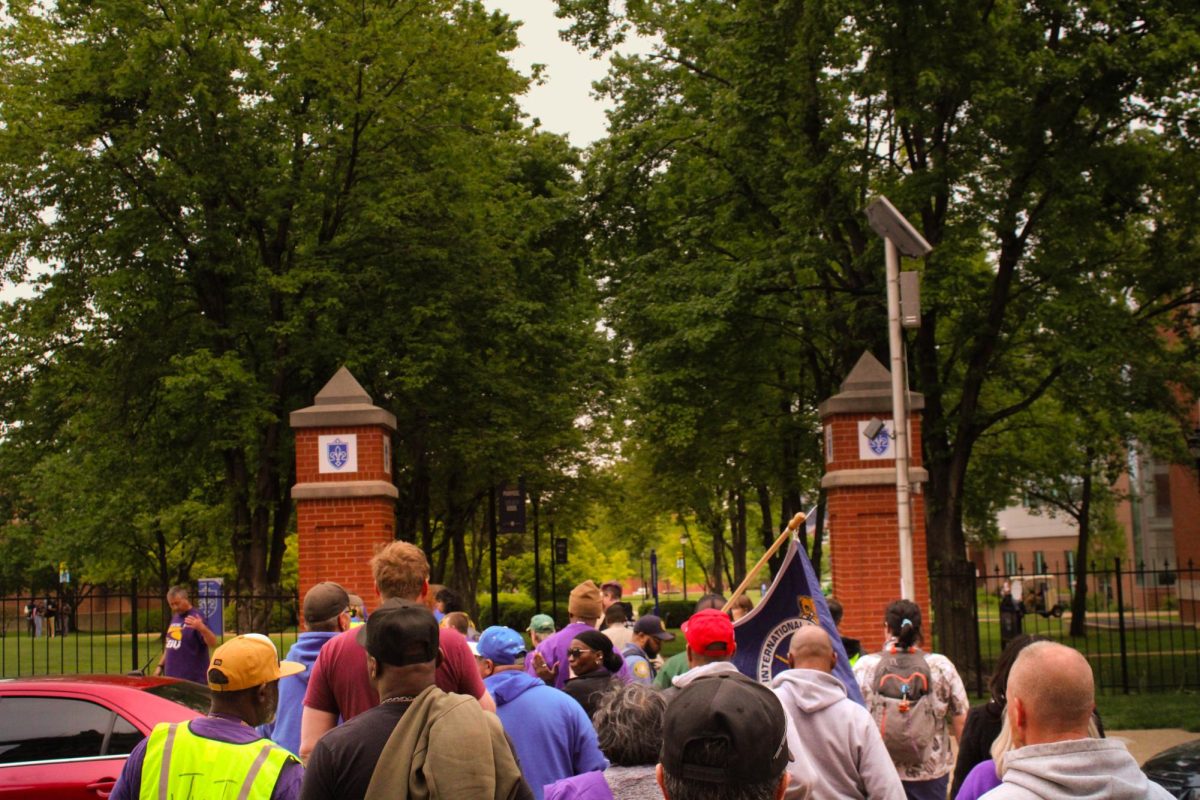After a number of college students became the target of
litigation for illegally sharing copyrighted electronic music files
using the Internet, a number of Saint Louis University offices have
taken action to educate students about the risks involved in
peer-to-peer file swapping.
“I just think it’s naïve and uninformed to believe that
this might not happen to you,” said Phil Lyons, assistant vice
president for student development.
On Aug. 29, Kathy Humphrey, vice president for Student
Development; Ellen Watson, Information Technology Service’s vice
president and chief information officer and Student Government
Association President Nick Sarcone sent an email to every SLU
student warning that the University could not protect them from
lawsuits simply because it controls the campus’ network.
“It is unlikely that SLU will escape [the RIAA’s] attention. If
you are caught in the act of illegally downloading music or film,
the fines and penalties will be assessed to you,” the email
warned.
SGA is also planning to take action. Sarcone plans to form a
task force, he said, “to investigate file sharing and how we can
better educate students on the ramifications of file sharing and
look into ways that the University can help institute a culture
that realizes the illegality of peer file sharing.”
The task force, which Sarcone said hopes to start in the next
couple weeks, will include faculty, students, staff and possible
outside experts. He also said the goal of the task force will not
be to produce University policy or a ban on file sharing.
“That is not my intention,” he said. “What I’ll charge them with
is student education on campus.”
The education is certainly needed, according to Lyons, who said
that college students are especially vulnerable to lawsuits.
“This demographic is the one they’re going after,” he said.
In the last year a great number of colleges and universities
have been subpoenaed for students’ personal information, which
almost all have given freely, after informing the targeted
users.
Most recently, the RIAA subpoenaed Boston College for the
personal information of three students who allegedly shared
copyrighted material, according to The Heights, BC’s newspaper.
The RIAA claimed in its subpoena that on June 29, one student
shared seven songs, and another eight. It also says on July 2, the
third student shared seven songs. Citing the 1976 Copyright Act,
recording companies are now expected to call for between $750 and
$150,000, in fines, per file.
“You’ve got a thousand songs at $750 to $150,000 for each file?”
said Lyons, as he paused and shook his head. “That’s some
cash.”
He added that while users may skirt the fines, “You’re going to
pay some pretty big-time legal fees.” According to the Chronicle of
Higher Education’s report, estimates show an individual contesting
an RIAA lawsuit could face between $30,000 and $100,000 in legal
fees.
Boston University, Northwestern and Loyola University-Chicago
have all also been subpoenaed. In April, students at Princeton
University and two other colleges were sued in excess of $12,000
each for sharing music files.
Ellen Watson, ITS’s new chief information officer, has had
personal experience with RIAA’s campaign: she was an information
technology officer at Loyola in January, when it received requests
by the RIAA for students’ personal information.
The school followed precedent and, in July, disclosed the
requested information. Yet Watson said she thought the recording
company’s goal then was simply to scare users. Now, she said, the
RIAA seems to be taking litigation more seriously.
The RIAA has offered an alternative to litigation: amnesty. A
user who has downloaded and shared copyrighted files may opt to
voluntarily confess to the RIAA, provided that he submit a
photograph of himself as well as a notarized statement promising to
cease illegal downloading and delete from his computer
illegally-obtained files, according to the The Chronicle of Higher
Education.
Users who have already been sued, or who have been identified
through subpoenas served on Internet service providers, are not
eligible for amnesty.
The Chronicle article also quoted Daniel N. Ballard, a
Sacramento lawyer, who suggests that students who have been sued
seek legal advice. A settlement with the RIAA, Ballard said, may
expose a user to criminal charges and lawsuits by music publishers,
given that recording companies may sue over copyrights for sound
recordings only.






